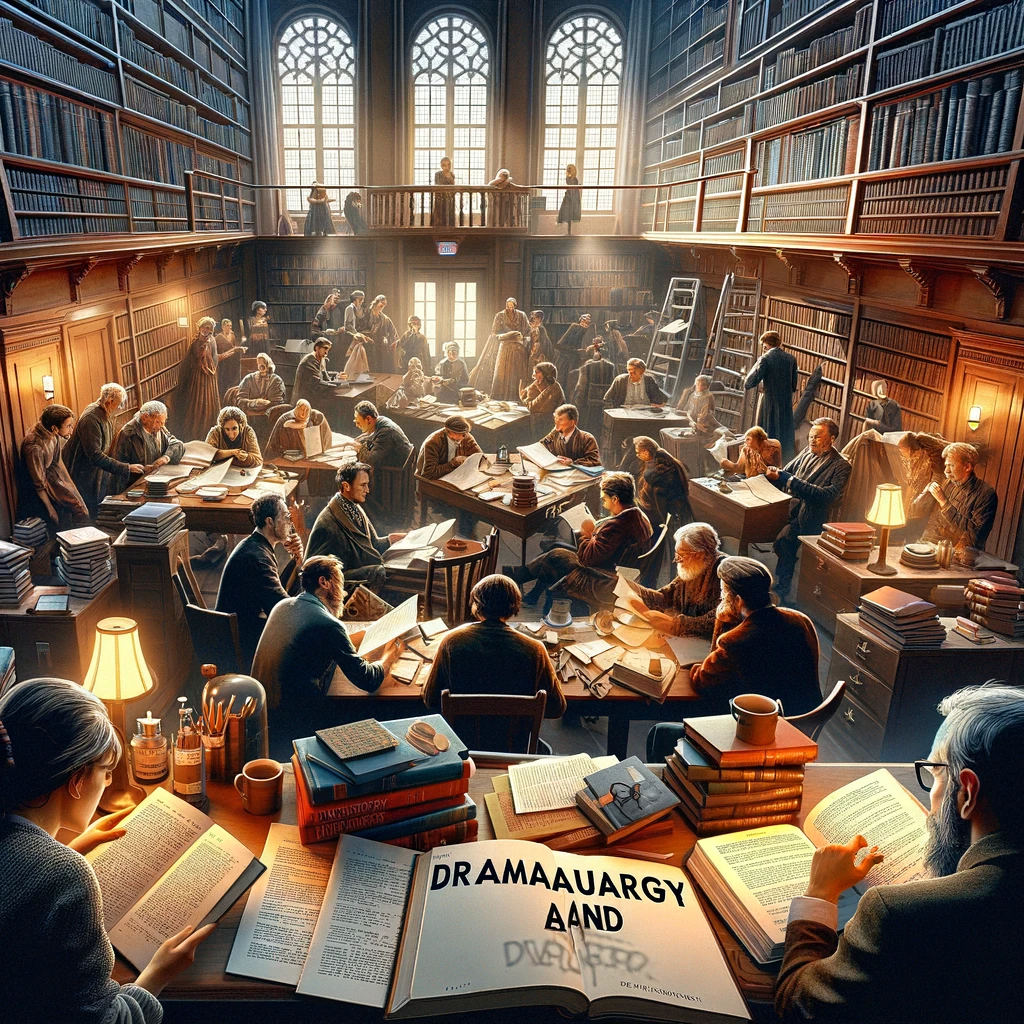In the crafting of a play, beyond the actors, directors, and designers, there are the dramaturgs—those dedicated to the heart and soul of storytelling. Dramaturgy and development are about nurturing a play from its conceptual seeds to its full bloom on stage. This process is the spine of any production, ensuring that the story told is not only compelling but also culturally and historically resonant.
The Role of the Dramaturg A dramaturg is a literary sherpa, guiding a play through the treacherous yet exhilarating terrain of development. They are researchers, editors, and consultants rolled into one. Renowned dramaturg, Lisa Thompson, explains, “Our work is to dig deep into the script, to understand its bones and sinews, and to help everyone involved in the production to do the same.”
The Research Craft The dramaturg’s toolkit is laden with historical texts, cultural analyses, and a deep understanding of narrative structure. For a play set in a particular era or locale, the dramaturg ensures authenticity and verisimilitude. “When an actor mentions the Battle of Stalingrad on stage, we’re the ones who’ve pored over the history books to make that reference truthful,” shares historian and dramaturg, Michael Brown.
Script Development: A Delicate Dance In new play development, dramaturgs work closely with playwrights, providing feedback that sharpens dialogue, tightens plots, and deepens character development. It’s a delicate dance, as dramaturg Sarah Lee notes, “Our goal is not to change the playwright’s voice but to clarify it, to make sure it’s heard as intended.”
Workshops and Readings: Testing the Waters A key phase in development is the workshop or reading, where the script is tested in front of an audience. Here, the dramaturg observes, gauges reactions, and discusses with the playwright which elements resonated and which may need reworking. “It’s about refining the material in the crucible of audience reception,” says theater director and dramaturg, Rajiv Joseph.
Cultural Sensitivity and Relevance In an age of heightened cultural awareness, dramaturgs are also cultural mediators, ensuring that the play’s content is sensitive and relevant. This means not only avoiding cultural missteps but also embracing diversity in storytelling. “We must be mindful of the narratives we put forth,” states cultural consultant and dramaturg, Anita Desai. “Theatre doesn’t exist in a vacuum. It reflects and affects the society it speaks to.”
The Dramaturg-Director Dynamic The relationship between the dramaturg and the director is vital. Together, they parse the script and its staging, ensuring that the director’s vision aligns with the text’s intentions. “It’s a partnership,” says director Aaron Patel. “The dramaturg helps me to see not just the text’s potential but also its roots and implications.”
The Audience’s Unseen Guide Ultimately, the dramaturg is the audience’s unseen guide. Their work ensures that when the lights go down, the world that emerges is one of depth, clarity, and resonance. “Our job is done in the shadows,” muses Lisa Thompson, “but if we’ve done it right, the audience will feel the depth of the story in their very bones.”
Dramaturgy and development are the thoughtful processes that give a play its integrity and its power. They are the unseen but critical phases where a play is sculpted, not just to entertain, but to endure. In the dramaturg’s hands, the play becomes more than a story; it becomes a living, breathing organism capable of touching hearts and changing minds.
This article explores the essential yet often-overlooked role of dramaturgy and development in theater, emphasizing the crucial work of dramaturgs in shaping the narrative and intellectual framework of a play.


